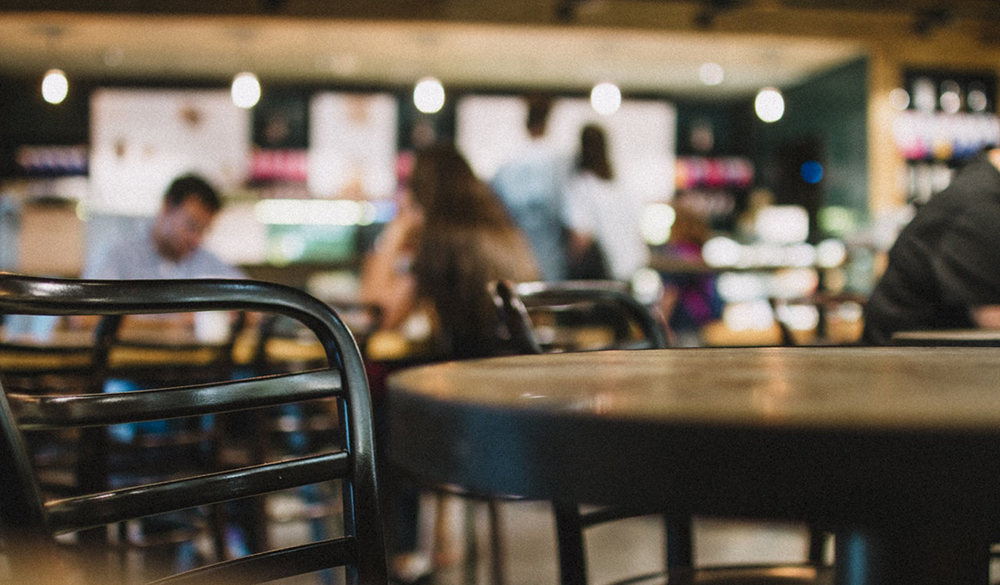Planning and designing your coffee shop is the fun part. The not-so-fun but crucial part of launching your business is the legal stuff. If you hope to keep your doors open, you will need to abide by local regulations and obtain the appropriate licenses and permits.
Regulations will largely vary from city to city, state to state. However, there are some general requirements that virtually all coffee shops will need to meet regardless of where they're located.

Coffee Shop Regulations
What Regulations Apply to a Coffee Shop?
Rules and regulations of a coffee shop will depend on the city and state. NC coffee shop regulations may be very different from CA's regulations.
It's important to do your due diligence and to start early on so that you understand exactly what you have to do to legally open your shop. The first place to start is by contacting your city to find out more about the local regulations for a coffee shop.
Coffee Shop Health Regulations
Your state's coffee shop rules and regulations will also require you to abide by local health regulations. The FDA's Food Code will provide you with a model through which you can develop or update your food safety rules.
The Food Code document spans more than 200 pages, and it includes recommendations on important topics, like:
- The extent of training required by health inspectors
- How often restaurants should be inspected
- Standards for commercial dishwashers and refrigerators
- Cooking temperatures for pork, meat, poultry, fish and eggs
- Hot-holding temperatures for prepared foods
It's important to note that the Food Code is not law, but it does provide suggestions that may be adopted as regulations. Some states and cities adopt the entire code, others adopt only portions, and others don't adopt any part of it.
Health inspections are par for the course when running a coffee shop, and it's important to view your health inspector as your colleague rather than your enemy.
Inspectors will typically check your shop's:
- Ingredients
- Cold storage, including refrigerators and freezers
- Storage methods
- Temperature monitoring
- Cleaning
- Produce prep
- Kitchen equipment
- Cooking and heating
It's important to understand your city's health codes and inspections, so you can ensure that your shop is abiding by regulations. The FDA lists retail and food service codes and regulations by state on its website.
Coffee Shop Licenses and Permits
What licenses are required for a coffee shop?
While every state has its own rules and laws, virtually every business is required to have a business license. There will likely be additional permits and licenses that you will need to obtain to legally run a coffee shop in your desired city.
Every city will have its own requirements, so it's important to contact your city/county/state regarding permit regulations. But generally speaking, coffee shops will need the following:
Business License
Depending on the entity type you are forming, you may need a business license and to register with your state.

Certificate of Occupancy
If you are building your shop, you will need a building permit, or certificate of occupancy, from the local building department. You will need to work with the city to determine the regulations for building a coffee shop.
Typically, most cities will look for approval from the fire and health department before issuing a certificate of occupancy. Approval from the fire and health department will require you to work with your engineer, architect and contractors.
During the build-out process, the city will conduct inspections and may require demolition, zoning and asbestos approval.
Before you even think about signing a lease, contact the city to make sure that your chosen location is a viable option.
Employer Identification Number (EIN)
Every coffee shop will require an employer identification number, or EIN. Think of an EIN as a Social Security number for your business. You will need to register with your state to receive an EIN.
Resale and Seller's Permits
A sales tax license will be required, which can be obtained through the state. This is the same department that will deal with state wage withholding and unemployment insurance.
While obtaining this license, you can also look into the process of registering with the city or county treasurer for tax purposes.
Seller's permits are almost always required along with the resale permit. You can register for this permit online through your local government's website.
Insurance
Some insurances, or liability licenses, may be required by the state or your landlord. These insurances may include property insurance, general business liability, workers' comp, etc.
Retail Food Establishment License
In order to serve drinks and prepared food at your establishment, you will need a permit from the health department. Ongoing inspections will be required to maintain this license.
To obtain this license, you will need to apply with the local health department. You may choose from temporary, mobile and fixed food service licenses.
When submitting your application, you will need the name of your restaurant, your personal information and an address for the shop (even if you're opening a mobile coffee shop).
Sign Permit
If you plan to put up a sign to attract customers, you will need to apply for a sign permit with the city government. The city will have its own regulations regarding size, lighting and location.
To obtain this permit, you will need to work with the city government. Depending on your location, you may need to hire a contractor to obtain the permit and design and install the signage. Some cities require contractors to present the design to the Planning Department in City Hall to be approved.
Music License
If you want to play music in your shop - live, from a CD or through a streaming service - you will need a music license to avoid copyright infringement. The fines for playing copyrighted music without a license can be $30,000 or more.
A music license can be obtained through The American Society of Composers, Authors and Publishers, or Broadcast Music Inc.

What is the Average Coffee Shop License Cost?
Most coffee shops will need a variety of licenses in order to serve the public. The cost of these licenses will vary from state to state.
A coffee shop license NYC, for example, may cost significantly more than a license in the small town of Hendersonville, North Carolina.
While we cannot give you an exact price, we can estimate or give a ballpark range. Let's go down the list of licenses listed above and discuss the average cost of each one.
- Business license: registration fee of around $50; license cost can range from $25 to $7,000, depending on the projected profit and type of business.
- EIN: Free
- Certificate of Occupancy: About $100
- Retail food establishment license: $100-$1,000, depending on location and number of employees
- Sign permit: $20-$50
- Music license: Can vary greatly, but for background music, it can cost $250-$500
- Seller's permit: No cost to apply, but some cities will require a security deposit should your restaurant close and you have unpaid taxes. The cost of the deposit will be determined at time of application.
It's important to remember that the costs listed above are just estimates we've pulled from our own research. The costs to obtain these licenses and permits may be higher or lower in your city. Contact your state to find out the exact costs.
Your state may also require additional permits and licenses. You will need to research your individual state's laws to find out which - if any - permits are required.
Learn more on how to open a coffee shop:
- Starting A Coffee Shop. Step 1: Choose Your Concept
- Starting A Coffee Shop. Step 2: Create A Business Plan And Find Insurance
- Starting A Coffee Shop. Step 3: Budget - Expenses Vs Profits
- Starting A Coffee Shop. Step 4: Find The Right Spot For Your Shop
- Starting A Coffee Shop. Step 5: Supplies And Equipment
- Starting A Coffee Shop. Step 7: Hire The Right Staff
- Starting A Coffee Shop. Step 8: The Menu And Food Safety Issues
- Starting A Coffee Shop. Step 9: Marketing And Promotion
- Starting A Coffee Shop. Step 10: Maximize The Revenue


